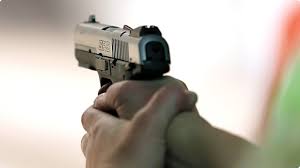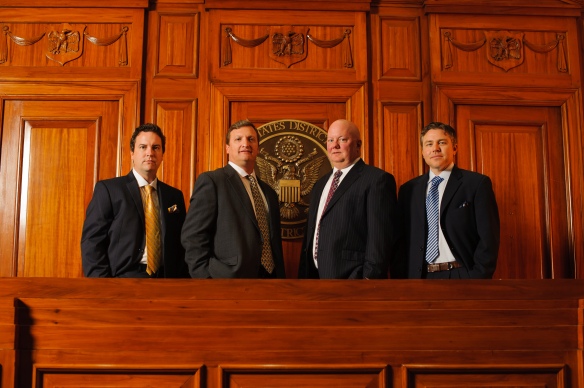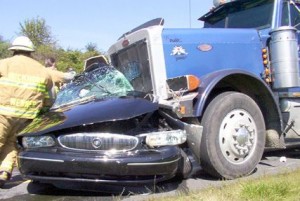
On May 21, 2011, seventeen year old Martin Blea, Jr. entered the business premises of The Pussycat Lounge, an after-hours BYOB establishment located in Odessa, Texas. The Pussycat Lounge was located less than a half mile from an adult cabaret known as Jaguars Gold Club. The Pussycat Lounge and Jaguars Gold Club essentially had the same owners and operators on May 21, 2011 and in the years leading up to May 21, 2011, such that the owners and operators of The Pussycat Lounge knew that dangerous and violent people were in the area and frequently visited The Pussycat Lounge
Martin Blea, Jr. went to The Pussycat Lounge with his older sister, among other individuals. At some point, his sister went to the restroom. As she was returning from the ladies’ room, a man, who was unknown to the sister (and has never been fully identified) but who had previously been seen conversing with a man named Steve Uresti and other patrons of the Pussycat Lounge, approached the sister and grabbed her in a sexually provocative manner. When the sister rejected these advances, the unidentified man punched the sister in the face and knocked her to the ground. The man then jumped on top of her. Martin Blea, Jr. was dancing on the dance floor at this time and saw his sister in distress. He went to pull the unidentified man off of his sister and a fight broke out. While Martin Blea, Jr. was attempting to aid his sister, Steve Uresti pulled out a 9 millimeter handgun and fired several shots into the air. Mr. Uresti then fired several more shots, one of which hit Martin Blea, Jr. in the face and killed him. Mr. Uresti’s gun had made its way into The Pussycat Lounge despite the fact that a policy was in place where patrons entering the premises were required to be screened with a hand held metal detector wand and patted down as part of an effort to keep dangerous weapons out of the club..
After being shot, Martin Blea, Jr. fell to the floor of The Pussycat Lounge where he struggled to breathe until the paramedics arrived. An ambulance transported Martin Blea, Jr. to a hospital in Odessa, Texas, where he was pronounced dead from his gunshot wound. On November 29, 2012, a jury in Ector County, Texas, convicted Steve Uresti of manslaughter in connection with the death of Martin Blea, Jr. and sentenced him to 20 years of confinement in the Texas Department of Corrections.
The parents of Martin Blea, Jr. retained DZWL to investigate the viability of, and potentially prosecute a wrongful death and survival action against persons determined to be potentially civilly liable for the death of Martin Blea, Jr. Our clients asserted that the owners/operators of The Pussycat Lounge controlled the security and safety of The Pussycat Lounge on May 21, 2011, and owed a duty to protect people visiting the club, such as Martin Blea, Jr., from the criminal acts of third parties if they knew or had reason to know of an unreasonable and foreseeable risk of harm to people visiting the club.. In that regard, the evidence revealed that the owners/operators knew or should have known that in the approximately three-year period immediately prior to May 21, 2011: a) the Odessa Police Department had been repeatedly called to the Jaguars Gold Club, a stone’s throw from The Pussycat Lounge, for numerous and repetitive instances of violent criminal conduct at Jaguars Gold Club involving, among other things, armed robbery, assault, gunshot victims and shots fired; b) the Ector County Sheriff’s Office had been repeatedly called to the premises of The Pussycat Lounge (as well as the business previously operated at those premises which was also owned and/or operated by the same persons) for numerous and repetitive instances of violent criminal conduct at those premises, involving, among other things, assault, aggravated assault, assault with bodily injury, aggravated assault with a deadly weapon, deadly conduct, robbery and a subject with a gun; and, c) the Ector County Sheriff’s Office had been repeatedly called to the Jaguar’s Gold Club for numerous and repetitive instances of violent criminal conduct at Jaguar’s Gold Club involving, among other things, assault, aggravated assault with a deadly weapon, aggravated assault, sexual assault, robbery, aggravated robbery, shots fired, deadly conduct, stab victim, man with a gun and prohibited weapon. Therefore, our clients asserted that the owners/operators of The Pussycat Lounge knew or should have known of the risk that persons in the immediate vicinity of The Pussycat Lounge who visited the Defendants’ two business establishments in that locale might foreseeably injure other people visiting the The Pussycat Lounge, such as Martin Blea, Jr., and Defendants had a duty to protect persons, such as Martin Blea, Jr., from the imminent, probable and foreseeable harm posed by other patrons of Defendants’ establishments. Our clients asserted that their son died as a result of Steve Uresti’s foreseeable act of firing a gun that had been brought into the Pussycat Lounge as a result of the inadequate security measures employed by Defendants at The Pussycat Lounge on May 21, 2011.
The Estate of the deceased, Martin Blea, Jr., incurred funeral and burial expenses of $11,423.06 and medical expenses of $1,193.50. The parents sought to recover damages under the Survival Statute for the alleged conscious pain and suffering endured by Martin Blea, Jr. between the time he was shot and the time he was pronounced dead. The parents also sought to recover for damages to the parent-child relationship, including loss of affection, solace, comfort, companionship, society, assistance, emotional support and love, loss of pecuniary value of the services of Martin Blea, Jr. and past and future mental anguish, grief and sorrow.
Despite the various contentions of the owners/operators, their insurance company paid our clients the insurance policy limits of $1,000,000 to settle their claims. The net recovery for our clients, after payment of attorneys’ fees and case expenses, was $555,494.39.
TO STAY UP TO DATE WITH THE LATEST LAW NEWS, BE SURE TO FIND US ON FACEBOOK AT https://www.facebook.com/dzwlaw AND FOLLOW US ON TWITTER AT https://twitter.com/DZWLAW and https://twitter.com/URHURT
DERRYBERRY ZIPS WADE LAWHORN, PLLC http://www.dzwlaw.com and http://www.urhurt.com
 On March 5, 2018, Shauna Ferguson, 36, an area sales manager, was driving a full-size pickup truck on Interstate 20, in Smith County. Ferguson slowed for traffic, and a sedan rear-ended her. The investigating police officer faulted the sedan’s driver for failing to control his speed and cited him for driving without a license. Ferguson claimed that she suffered a neck injury, and she filed a claim with the sedan driver’s insurer, Cainsco. That claim settled for the policy limit of $30,000. Ferguson was driving a company vehicle, which had $1 million in underinsured motorist coverage through St. Paul Fire & Marine Insurance Co.
On March 5, 2018, Shauna Ferguson, 36, an area sales manager, was driving a full-size pickup truck on Interstate 20, in Smith County. Ferguson slowed for traffic, and a sedan rear-ended her. The investigating police officer faulted the sedan’s driver for failing to control his speed and cited him for driving without a license. Ferguson claimed that she suffered a neck injury, and she filed a claim with the sedan driver’s insurer, Cainsco. That claim settled for the policy limit of $30,000. Ferguson was driving a company vehicle, which had $1 million in underinsured motorist coverage through St. Paul Fire & Marine Insurance Co.





